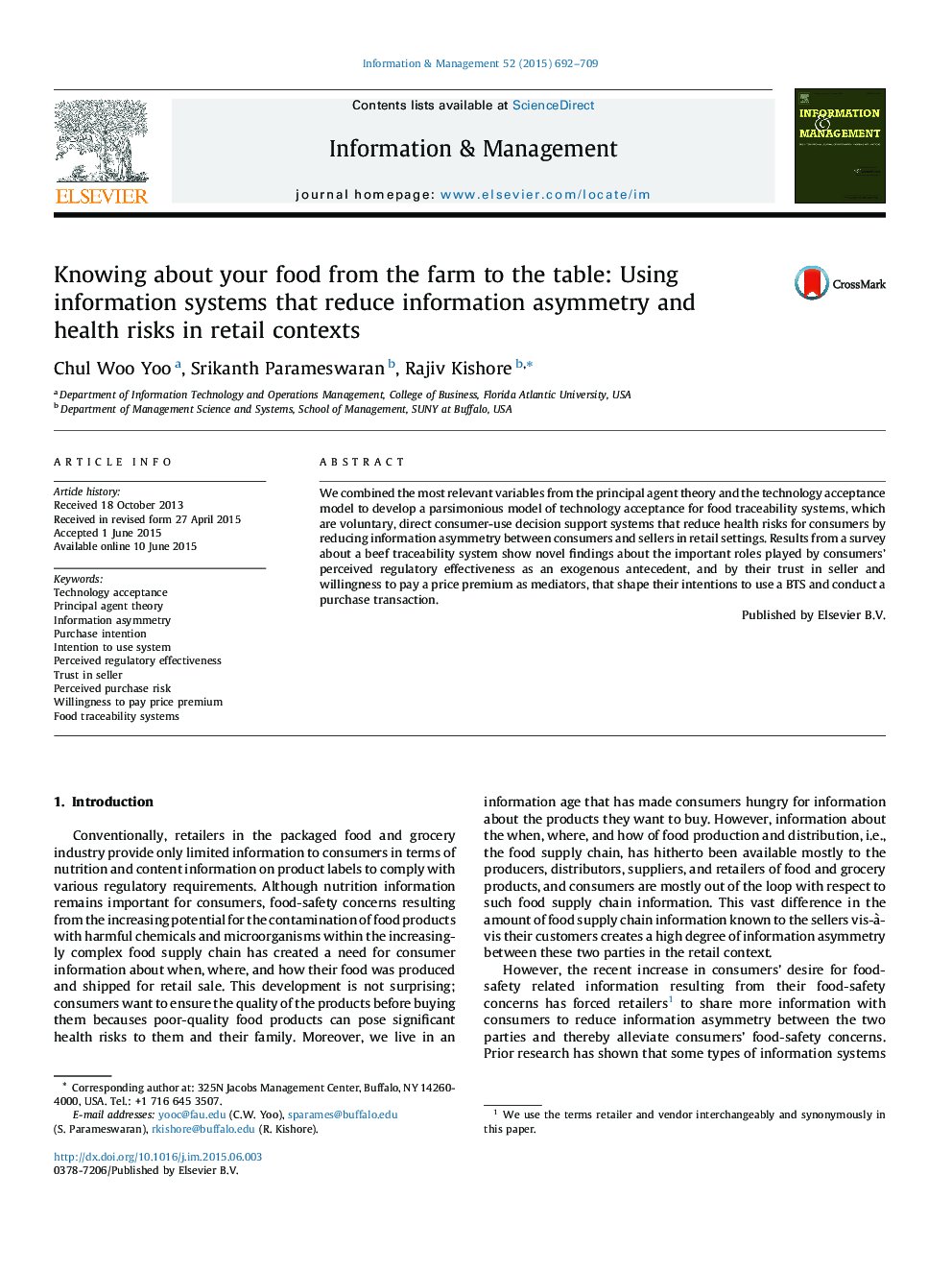| Article ID | Journal | Published Year | Pages | File Type |
|---|---|---|---|---|
| 553172 | Information & Management | 2015 | 18 Pages |
•Studied purchase intention in retail settings using food traceability systems (FTS).•Typified FTSs as voluntary, direct consumer-use decision support systems.•Theoretical constructs from principal agent theory and technology acceptance model.•Perceived regulatory effectiveness an information asymmetry reducing antecedent.•Willingness to pay price premium an important mediator between trust and intentions.
We combined the most relevant variables from the principal agent theory and the technology acceptance model to develop a parsimonious model of technology acceptance for food traceability systems, which are voluntary, direct consumer-use decision support systems that reduce health risks for consumers by reducing information asymmetry between consumers and sellers in retail settings. Results from a survey about a beef traceability system show novel findings about the important roles played by consumers’ perceived regulatory effectiveness as an exogenous antecedent, and by their trust in seller and willingness to pay a price premium as mediators, that shape their intentions to use a BTS and conduct a purchase transaction.
